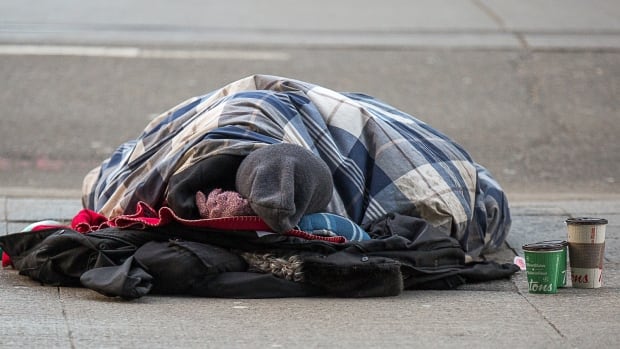
Halifax homeless population doubled in a year, according to not-for-profit group
CBC
A not-for-profit organization working to help build affordable housing while protecting Nova Scotia's existing housing stock says homeless in Halifax has doubled in a year.
The Affordable Housing Association of Nova Scotia (AHANS) said as of Sept. 27, more than 690 people are experiencing homelessness in the municipality — more than double the number from this time last year.
Most of those people, 484 of them according to AHANS, identify as "chronically homeless," meaning they've been homeless at least six months or recurrently homeless during the last six years.
AHANS gets its numbers from community service providers who share them, including Metro Turning Point, the Salvation Army, Adsum for Women, the YWCA and the Out of the Cold Shelter.
"There's a desperate lack of housing, particularly housing that's accessible to lower-income people," executive director Jim Graham told CBC's Information Morning Halifax on Monday.
"And the other thing that complicates it is just pressures on low incomes is growing all the time. Fuel costs are up, food costs are up, inflation is up."
Pensions and minimum wage aren't keeping up with inflation, Graham noted, adding there are many reasons why more homelessness is being reported in the city.
"There's no short-term solution to creating more housing, there just isn't. There's a lot of people being supported in hotels right now and other more or less temporary accommodation and it's not really meant to be a permanent home," he said.
The province has provided funding for an emergency shelter in the Halifax area that is aiming to have 40 additional beds for people by mid November.
There are also some rapid housing projects underway as well, Graham noted, like Adsum for Women and Children's new 25-unit affordable housing development.
"I think the Department of Community Services with its mandate around permanent supported housing — that's a huge help. It's not something you can do immediately but a commitment to having that kind of housing support attached to housing is really important," he said.
Graham said one of the things missing is mobile mental health supports that aren't only for crisis situations.
"The thing with mobile crisis is they solve the crisis and they go away and the crisis repeats so the community doesn't have the access to the kinds of professional services they need to properly support some people and keep them housed," he said.
As the number of people experiencing homeless rises, there's also an increased demand from people seeking legal aid for their housing concerns.

 Run 3 Space | Play Space Running Game
Run 3 Space | Play Space Running Game Traffic Jam 3D | Online Racing Game
Traffic Jam 3D | Online Racing Game Duck Hunt | Play Old Classic Game
Duck Hunt | Play Old Classic Game